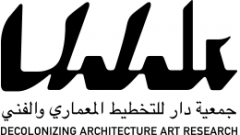Sandi Hilal:
‘Stateless’ and ‘NGO’, for me are two terms that are connected. The Palestinians are under a kind of stateless regime. Before the First Intifada (1987-1993) we were totally dependent on Israel. Our civil society was not strong, we were even considered by the others in the Palestinian scene to be the sleeping people in the West Bank. And then suddenly the First Intifada came and we started acting collectively for justice. This was the beginning of building a very strong civil society in Palestine. It is still a crucial period in our lives. I studied for three years in informal schools because the schools were closed. So the Palestinian society organized themselves and created these schools, illegal informal schools, in their garages. This permitted us to go to school, even under curfew. We managed to plant and share gardens in any empty lands around our homes. Here we began to form a strong civil society. Then the Palestinian Authority came in and there was a clash between leaders. How was the Palestinian Authority supposed to take control over people that had governed themselves for many years during the First Intifada? The only way to continue and strengthen this kind of civil society and allow for the Palestinian Authority was through the NGO structure. This is why the West Bank is called the NGO Society. NGOs cover many parts of the Palestinian society that the Authority cannot cover. They work parallel to each other.
The leaders in the West Bank found themselves more suitable to be the directors of NGOs than to be politicians in the Authority. That is why you have Mustafa Barghouthi leading a health network. You will find all the Popular Front leaders in a position of leading NGOs.
I don’t want to criticize the Palestinian Authority because they don’t even have the possibility to act as a government. They are not a state and they find themselves in a situation where they have to govern without the instruments of a nation or state. The NGOs are leading the social society in all sectors; they are doing the work on the ground. If we want to work on a scenario where the people are active in decolonizing architecture, the NGOs are the best entrance to the Palestinian people.

Interview with Alternative Information Center
Civil society:
Political agenda:
The role of NGOs:
Struggle:
Interview with ATG – Alternative Tourism Group
Rational:
The important role of NGOs
Interview with Beit Sahur Women’s Shelter
Rational:
Interview with Imad Atrash from the Palestinian Wildlife Society
Advantages:
